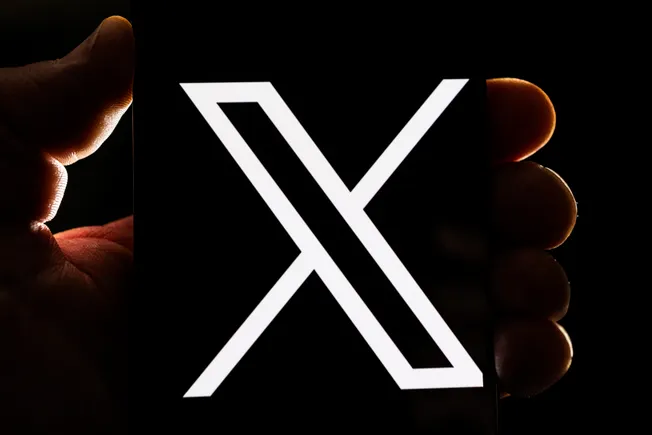How Nissan used TikTok creators to promote its new electric vehicle
The automaker invited hundreds of TikTok users to share videos of themselves pronouncing the name of the Nissan Ariya, its latest EV.

For automakers such as Nissan, familiarizing consumers with a new vehicle model presents a marketing challenge. So, when it came to promoting the official launch of its first all-electric SUV, the Nissan Ariya, Nissan decided to embrace a new approach for the company—deploying a TikTok-first campaign with the help of more than 1,500 creators on the platform.
With this TikTok push—which began Jan. 30—Nissan aims to embed the vehicle’s name in people's minds by teaching them the correct way to pronounce “Ariya.” But, to avoid boring consumers with a dry pronunciation lesson, Nissan instead invited TikTok creators to share how they pronounce a series of words, including “Ariya,” with an AR filter game. Players are able to choose between two possible ways to pronounce a word with a tilt of their head, so long as their video is labeled with the campaign hashtag, #HowDoYouSayAriya.
Rather than directly contacting individual influencers to partner with for its #HowDoYouSayAriya campaign, Nissan solicited creators to submit videos of themselves trying out the game through TikTok’s Creator Marketplace using the platform’s “branded mission” feature. Essentially a crowdsourcing tool, the feature allows brands to collect thousands of videos from a wide variety of TikTok creators, then comb through the submissions to select a handful of videos to put paid support behind, said Dan Brenikov, head of digital and social innovation for Nissan at TBWA\Chiat\Day.
“Instead of you having to launch in social media with two or three really good, well-made videos that are supported by paid media, you could have literally thousands of people saying the name of your vehicle in this sort of groundswell of creators,” he said. “Establishing a new nameplate is about as hard as it gets in auto. From the beginning, we knew we wanted to do something—either a stunt or something big—that would help bring the Nissan Ariya and that name into popular culture.”
Creators benefit from this system, too, as those whose video submissions are selected to be converted into an ad are compensated by the brand. This can especially be a boon for influencers with smaller followings, who may not otherwise have access to a significant number of brand deals.
In just two days, Nissan received over 2,400 submissions from 1,600 creators trying out the pronunciation game, Brenikov said. Because of the 48-hour turnaround for these user submissions, Nissan had to pore over the best-performing videos of the bunch and shuffle them through legal approvals at a rapid pace. The campaign ultimately provided the auto company with a plethora of user-generated content to choose from, he said.
Nissan was able to highlight videos from a broad range of consumers on the landing page for the hashtag #HowDoYouSayAriya, from a kindergarten teacher to a lifestyle and beauty influencer who speaks English as a second language, offering a unique perspective on the pronunciation of several English words.
Along with these hundreds of creator-submitted videos, the #HowDoYouSayAriya hashtag has attracted 75 million views in the past three weeks, and roughly 1,000 additional TikTok users have posted videos of themselves playing the AR game over the past two weeks.
According to TikTok data, the user-generated videos that brands convert into ads through the branded mission feature—which was first released in beta testing last May—are 56% more memorable than ads created by a brand itself. The content collected through branded missions also helps to boost brand awareness by an average of 146% and increase purchase intent by 900%, per the data.
“What I like about [the TikTok campaign] is that it’s so simple,” said Leslie Stone, chief strategy officer for Nissan at TBWA\Chiat\Day. The overarching campaign for the Ariya involves several other ad mediums, from TV spots starring Brie Larson and Jay Ellis to an upcoming AR and VR push across Google, Meta and Snapchat. But the TikTok element of Nissan’s campaign involves solely establishing name recognition for the Ariya model. “I know that seems kind of obvious, but it’s actually a really challenging part of this jigsaw puzzle.”
“Our goal was [that] we would have people know the name Ariya before they'd even seen a TV commercial,” Brenikov added. “That's why this pronunciation piece was first.”
In addition to collecting user-generated content focused on the debate over how to pronounce words such as “pecan” and “crayon,” Nissan also kicked off its TikTok push with a group of celebrities whose names are frequently mispronounced. Partnering with celebrities ranging from actress and singer Idina Menzel to Miami Dolphins quarterback Tua Tagovailoa, Nissan produced a series of TikTok-exclusive videos in which the celebrities teach viewers the correct way to say their names, as well as “Ariya.” Each of these videos, posted on Nissan’s TikTok channel, has racked up millions of views.
“We loved the idea of using the celebrities to draw people in to this pronunciation game, and then using a range of creators with different-sized followings to create a groundswell of content conversation on TikTok,” Allyson Witherspoon, chief marketing officer at Nissan U.S., wrote in an email.
TikTok isn’t a new part of Nissan’s overarching social media strategy. Nissan began prioritizing the platform after incorporating it into the company’s “Thrill Driver” Super Bowl campaign last February, Witherspoon said. Over the past year, Nissan has experimented with its TikTok content and sought to determine the best ways to engage with consumers on the platform, recently tapping into trends like ASMR, she said.
And, even before breaking into TikTok, the company has regularly partnered with influencers at all levels, from big-name celebrities such as Larson to Heisman athletes, Brenikov noted. Nissan has even previously worked with TikTok creators who own Nissan vehicles to share user-generated content for the company to post on its own TikTok page, he said.
But the #HowDoYouSayAriya initiative represents a “newer piece” of Nissan’s TikTok strategy in working with creators, Brenikov added, with the company planning to continue tapping smaller influencers to create content that will resonate with TikTok users.
The company will continue to extend its promotion of the Ariya beyond TikTok in the coming weeks. For example, the company recently collaborated with YouTuber LoFi Girl on a four-hour video ad modeled after the YouTuber’s soothing music live streams, which has received 1.5 million views in two weeks.
“The reason Ariya is exciting is that it's a wholly new name and a wholly new kind of vision for the company,” TBWA\Chiat\Day's Stone said. “A lot of other EVs on the market are [from] automakers that took an existing nameplate and made an EV version, but ours is ground-up. That’s why getting the name right and establishing the name as a sort of icon is so important to us.”

 JimMin
JimMin 































